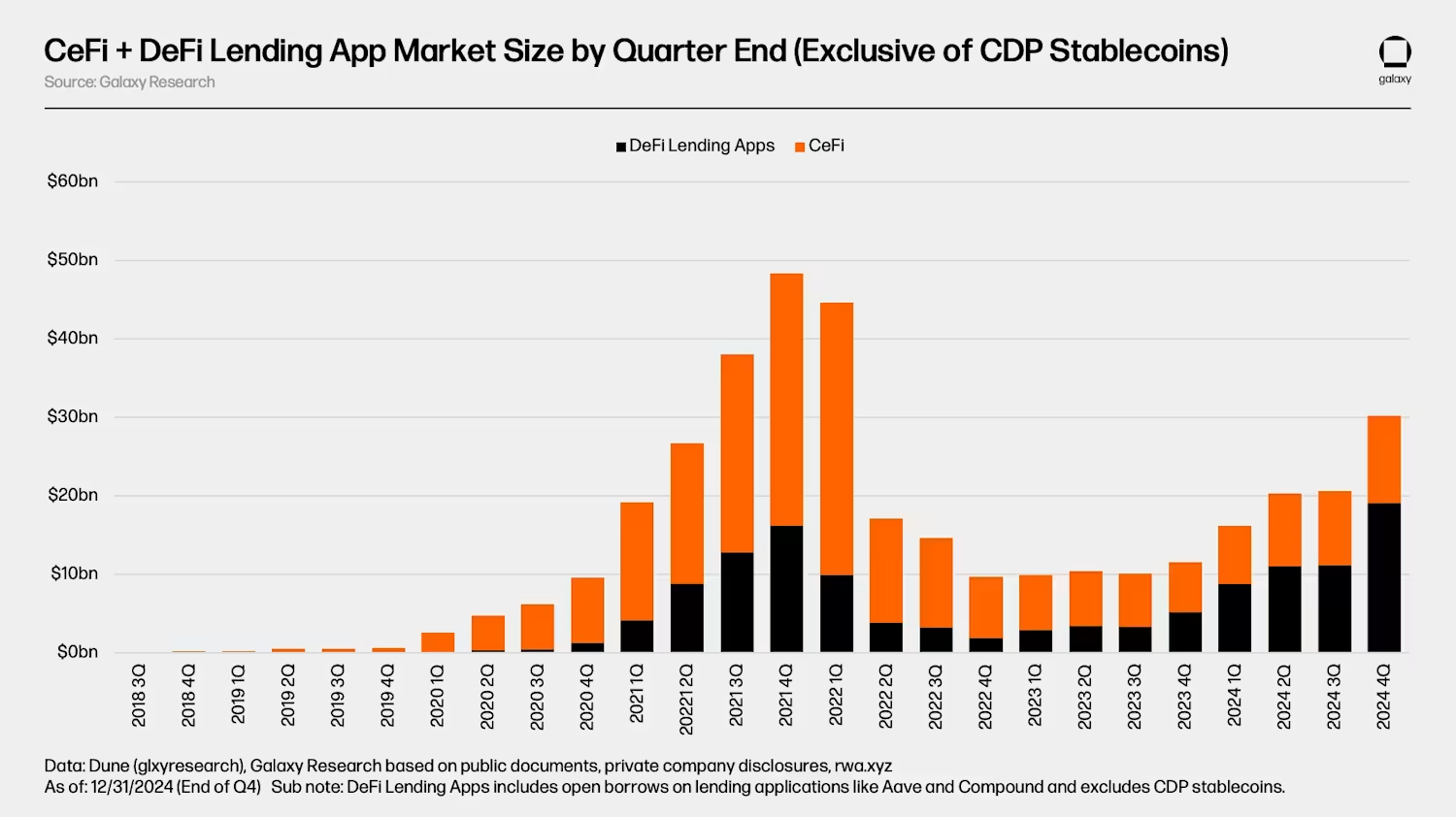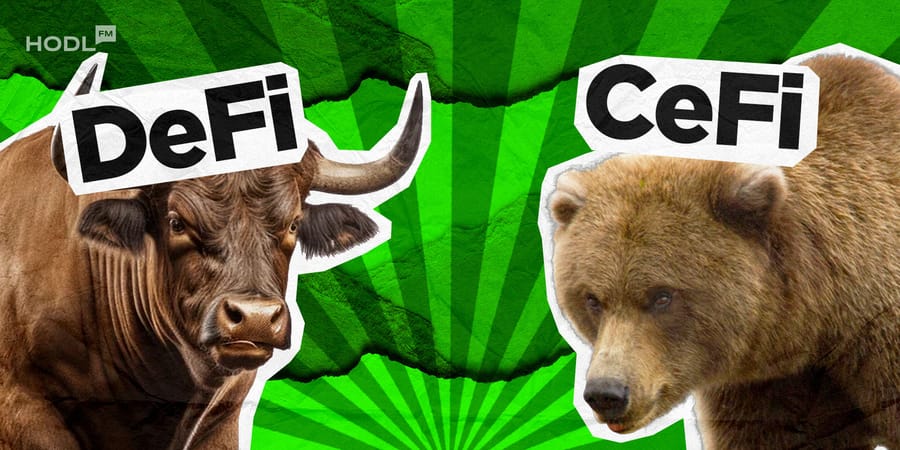Well, well, well—guess who's back from the dead? The crypto lending market is showing signs of life again after being pronounced DOA following the spectacular flameouts of Celsius, Genesis, and BlockFi. But not all resurrections are created equal! While Centralized Finance (CeFi) is hobbling back on crutches, Decentralized Finance (DeFi) is doing cartwheels across the finish line.
The Numbers Don't Lie - DeFi's Victory Lap
According to Galaxy Digital's report (who clearly have a thing for measuring financial corpses), CeFi borrowing reached $11.2 billion in Q4 2024. That's a 73% rise from its bear market rock-bottom of $6.4 billion. Pop the champagne! Or maybe just a wine cooler—because this "recovery" is still a painful 68% below CeFi's glory days of $34.8 billion.

Meanwhile, in DeFi-land, the party never really stopped! DeFi borrowing has exploded to a new all-time high, surpassing its previous peak by 18%. Talk about showing off! From Q4 2022 to Q4 2024, DeFi lending surged an eye-watering 959%—because apparently, near-quadruple-digit growth is how DeFi says "hello again."
CeFi's New "Big Three" - Fewer Players, More Concentration
The CeFi sector now resembles a game of musical chairs where most of the seats have been removed. The top three lenders—Tether, Galaxy, and Ledn—now control a whopping 89% of the market. That's up from the 75% that Genesis, BlockFi, and Celsius controlled before they spectacularly self-destructed.
As Ledn's co-founder Mauricio Di Bartolomeo helpfully pointed out:
"Most CeFi firms do not offer yield products to US clients since 2022. DeFi platforms often don't comply with these regulations nor require KYC, which could be a factor."
Translation: "DeFi doesn't play by the rules, and that's kind of working out for them!"
DeFi vs. CeFi. The Ultimate Showdown
Let's break down this financial cage match in a table that even your crypto-curious grandmother could understand:
| Feature | DeFi | CeFi |
|---|---|---|
| Current Market Share | 63% of total lending | 37% of total lending |
| Growth Since Q4 2022 | 959% increase | 73% increase |
| vs. Previous Peak | 18% higher than previous peak | 68% lower than previous peak |
| Key Players | Aave, Compound | Tether, Galaxy, Ledn |
| Market Concentration | Distributed across 20+ apps | 89% controlled by top 3 lenders |
| Regulatory Approach | "Rules? What rules?" | KYC, regulatory compliance |
| User Control | Self-custody, code is law | "Trust us with your money" |
| Risk Management | Automated liquidations, overcollateralization | Human oversight, variable policies |
| Accessibility | Anyone with internet | Jurisdictional restrictions |
| Transparency | On-chain verification | Trust-based reporting |
DeFi Carrying the Team
The overall crypto lending market has bounced back to $30.2 billion, but let's be honest—DeFi is doing the heavy lifting here. Like that one group project member who actually does all the work, DeFi has expanded from just 34% of the market in the 2020-2021 bull run to a dominant 63% today.
4/ The data on the report seems to suggest that DeFi platforms have rebounded faster than CeFi platforms. Some colour here:
— Mauricio Di Bartolomeo (@cryptonomista) April 14, 2025
- As referenced above, most CeFi firms do not offer yield products to U.S. clients since 2022. DeFi platforms often don’t comply with these regulations,… pic.twitter.com/QQtbDJwz7E
"The total market has expanded to $30.2 billion, mostly driven by DeFi lending app expansion," Galaxy noted, presumably while watching CeFi struggle to keep pace.

DeFi's Permissionless Party Continues
DeFi platforms appear to be the true champions of this recovery saga. Their decentralized, permissionless nature has provided a sturdy foundation while CeFi was busy explaining to customers why their money disappeared.
Platforms like Aave and Compound sailed through the bear market without imploding—a surprisingly low bar that many CeFi platforms couldn't manage to clear. With $19.1 billion in open borrows across 20 lending applications and 12 blockchains, DeFi is not just recovering—it's thriving.
The moral of the story? Perhaps "not your keys, not your cheese" has finally sunk in for crypto lenders. Or maybe DeFi's "code is law" approach simply works better than "trust us with your money." Either way, this round clearly goes to DeFi, with CeFi still trying to find its footing in a post-apocalyptic lending market.

Disclaimer: All materials on this site are for informational purposes only. None of the material should be interpreted as investment advice. Please note that despite the nature of much of the material created and hosted on this website, HODL FM is not a financial reference resource and the opinions of authors and other contributors are their own and should not be taken as financial advice. If you require advice. HODL FM strongly recommends contacting a qualified industry professional.





